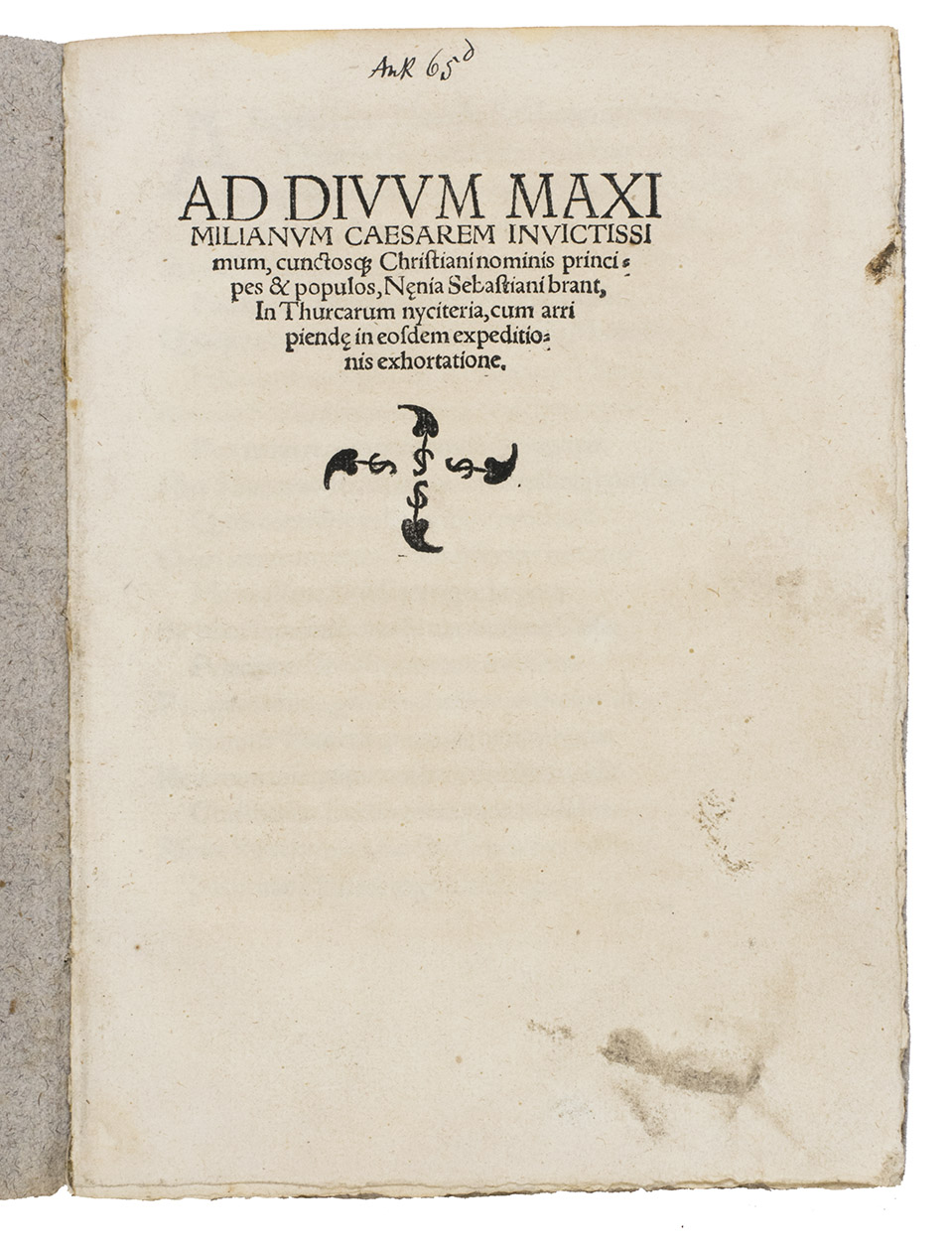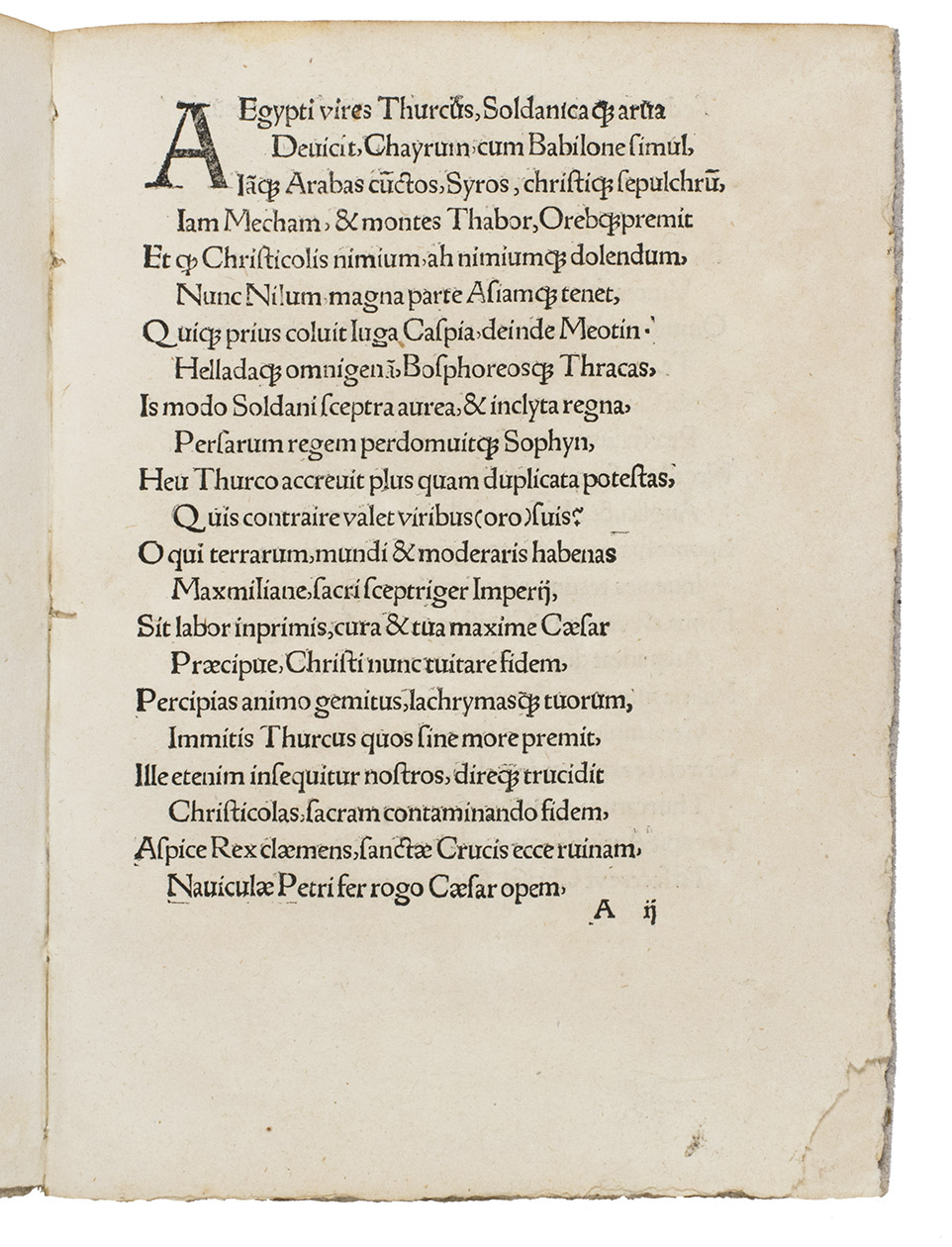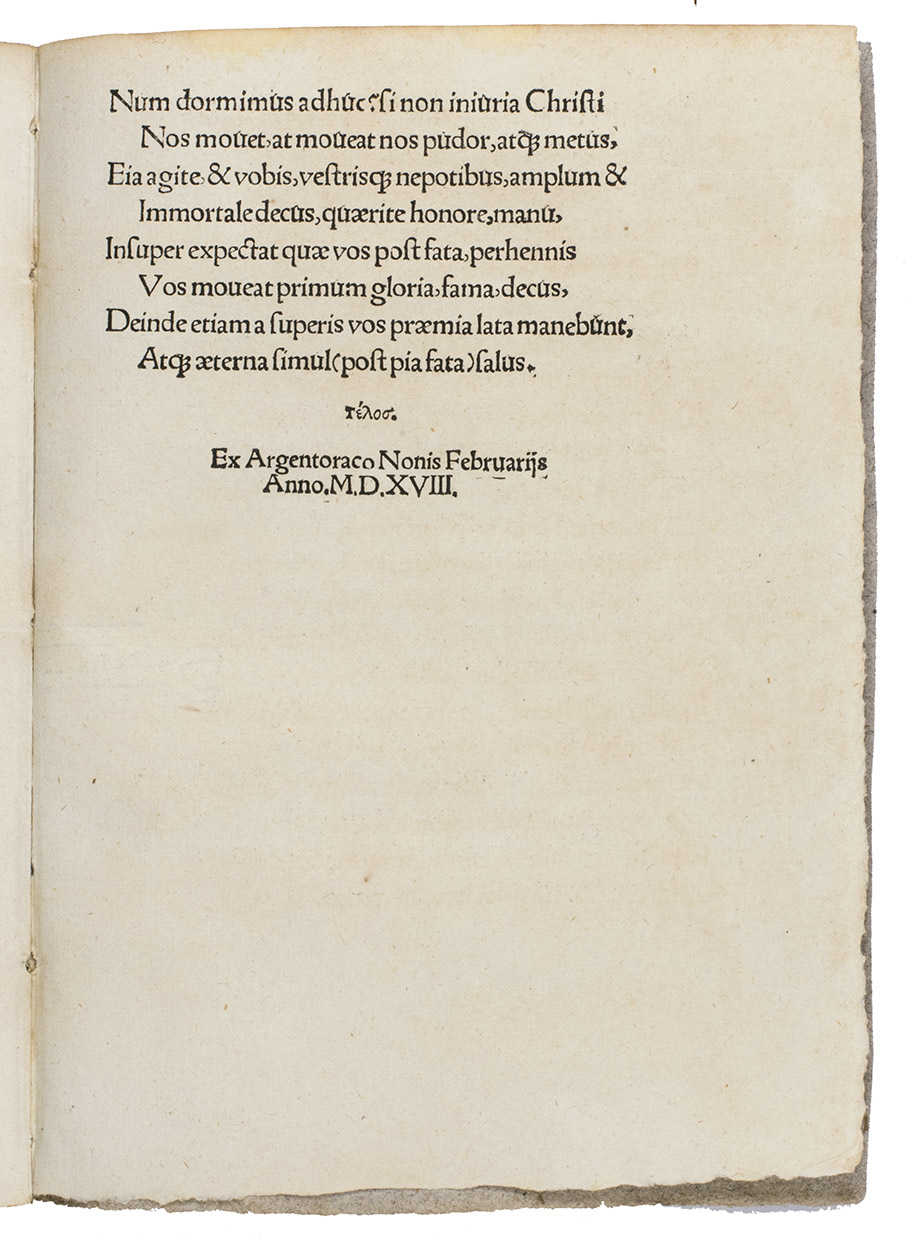BRANT, Sebastian.
Ad divum Maximilianum Caesarem invictissimum conctosque Christiani nominis principes et populos, Nenia Sebastiani Brant, In Thurcarum nyciteria, cum arripiende in eosdem expeditionis exhortatione.
(Colophon:) Strasbourg, [Johann Knoblauch], 9 February 1518. 4to. With a small vignette built up from typographical ornaments on the title-page. 18th-century grey paper wrappers. [1], [1 blank], [5], [1 blank] pp.
€ 6,500
First edition of a 16th-century poem, which expresses outrage at Sultan Selim I (1470-1520) for his territorial expansions, and urges Emperor Maximilian I (1459-1519) to start a crusade against him. The sultan tripled the size of the Ottoman Empire during his reign and made it the preeminent Muslim state of the time. In 1516-1517 Selim conquered the Mamluk Sultanate and was able to add their entire territory to his empire, which included Syria, Palestine, Egypt and parts of the Arabian peninsula. He was not, however, in conflict with Europe.
Sebastian Brant (ca. 1457-1521) was a German humanist, poet and lawyer. He was a prolific author, but is mostly known for his satirical work Das Narrenschiff, which was illustrated by Albrecht Dürer and is considered the most important work in the "ship of fools" genre. Brant was worried about the Ottomans and praised Ferdinand II of Aragon (1479-1516) and other leaders who had opposed them. He especially believed that Emperor Maximilian I could stop them from expanding further. In this poem, he urges him to do so, in order to safeguard Christian faith.
The 48-distich poem starts with a litany of the most recent Ottoman expansions and the fear that the Christians in these regions will suffer. Brant writes that Maximilian is the only one with the power to intervene, that he will receive great glory if he does and that everyone in Europe will support him. The poem is clearly anti-Ottoman, but it seems Brant was genuinely afraid the Ottomans would move towards Europe unless they were stopped. He was not completely wrong, as Selims successor, Suleiman I (1494-1566) would conquer Hungary in 1526. However, he never progressed further.
The present work is very rare on the market, as we have not been able to trace it in any sales records of the last century.
With a small annotation at the head of the title-page in black ink ("AnR 65 d"), some light ink stains on the title-page, small water stain in the head margin of the leaves. Overall in good condition. Apponyi, Hungarica III, p. 371; BM General catalogue, p. 1030; Göllner, Turcica I, 94; USTC 608859 (13 copies) VD16 B 7044 (12 copies, all also in USTC); WorldCat 164743012, 1406893525, 494545156, 313213345, 837127915, 1063835111, 863720556 (19 copies, incl. 7 also in USTC); cf. Chisholm, Encyclopaedia Brittanica vol 4, p 431.
Related Subjects:



